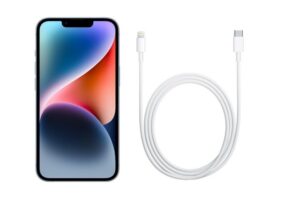Looking to charge your car battery quickly and conveniently? Wondering how long it takes to charge a car battery with a portable charger? Well, you’ve come to the right place! In this blog article, we’ll be discussing the ins and outs of charging your car battery using a portable charger. Whether you’re in a rush or simply need a reliable solution, we’ve got you covered. So, let’s dive right in and explore how long it takes to charge a car battery with a portable charger!
How Long to Charge a Car Battery with a Portable Charger
Introduction
Car batteries can sometimes die unexpectedly, leaving you stranded and in need of a quick solution. One way to conveniently charge your car battery is by using a portable charger. Unlike traditional chargers, portable chargers offer flexibility and ease of use, allowing you to charge your car battery wherever you are. However, the question of how long it takes to charge a car battery with a portable charger is crucial to understand to plan your time effectively. In this article, we will delve into the factors that influence charging time, provide estimated charging durations, and offer tips for optimizing the charging process.
Factors Affecting Charging Time
Several factors come into play when determining how long it takes to charge a car battery with a portable charger. Understanding these factors can help you manage your time and expectations more effectively:
1. Battery Capacity
The capacity of your car battery, measured in ampere-hours (Ah), directly affects the charging time. A battery with a higher capacity will typically take longer to charge fully compared to a battery with a lower capacity. For example, a 40Ah battery will take longer to charge than a 30Ah battery.
2. Charger Output
The output power of your portable charger is another critical factor. Most portable chargers have different output levels, usually ranging from 2 to 20 amps. The higher the output power, the faster the charging process. However, it is important to match the charger output with the battery’s requirements to avoid overcharging or damaging the battery.
3. Battery Charge Level
The current charge level of the battery also impacts the charging time. If the battery is completely drained, it will take longer to charge compared to a partially depleted battery. Additionally, deeply discharged batteries may require special charging procedures to ensure their longevity.
4. Battery Condition
The overall condition of the battery plays a significant role in charging time. Older or damaged batteries often take longer to charge due to reduced efficiency and capacity. Before attempting to charge a worn-out battery, it is advisable to consult a professional to assess its condition and determine if replacement is necessary.
5. Environmental Factors
Environmental conditions such as temperature can affect the charging time as well. Extreme temperatures, both hot and cold, can impact the battery’s ability to charge efficiently. It is recommended to charge your car battery in moderate temperatures for optimal results.
Estimated Charging Durations
While charging times may vary depending on the factors mentioned above, the following table provides rough estimates for different battery capacities and charger outputs:
| Battery Capacity (Ah) | Charger Output (Amps) | Estimated Charging Time |
|---|---|---|
| 30 | 2 | 15 hours |
| 30 | 10 | 3 hours |
| 50 | 5 | 10 hours |
| 50 | 15 | 2-3 hours |
| 70 | 10 | 7 hours |
| 70 | 20 | 3-4 hours |
Please note that these estimates serve as general guidelines and may not apply to all situations. Always refer to the manufacturer’s instructions for your specific portable charger and battery combination.
Tips for Optimizing Charging Time
To make the most of your portable charger and reduce charging time, consider the following tips:
1. Choose the Right Charger
Ensure that your portable charger’s output power matches the requirements of your car battery. Using a charger with an inadequate output may prolong the charging process or damage the battery.
2. Keep the Charger Clean
Regularly clean the charger’s terminals to ensure proper contact with the battery. Dirt or corrosion can hinder the charging process and lead to inefficiencies.
3. Properly Maintain the Battery
Regular maintenance of your car battery can help improve charging efficiency. Keep the battery clean, check for any signs of damage or leakage, and ensure the terminals are securely connected.
4. Charge in Moderate Temperatures
Whenever possible, charge your car battery in moderate temperatures. Extreme heat or cold can affect the charging efficiency and potentially harm the battery.
5. Avoid Overcharging
Overcharging can damage your car battery and reduce its lifespan. Once the battery reaches a full charge, disconnect the charger promptly to avoid unnecessary strain on the battery.
6. Consider a Smart Charger
Investing in a smart charger can provide additional benefits. These chargers monitor the battery’s condition and adjust the charging process accordingly, ensuring efficient and safe charging.
Charging a car battery with a portable charger offers convenience and flexibility, allowing you to get back on the road quickly. The charging time varies depending on factors such as battery capacity, charger output, charge level, battery condition, and environmental factors. By understanding these factors and following the recommended tips, you can optimize the charging process and ensure efficient and safe charging for your car battery.
Remember to always refer to the manufacturer’s instructions for your specific portable charger and battery combination to ensure optimal charging and battery performance.
Frequently Asked Questions
How long does it take to charge a car battery with a portable charger?
The charging time for a car battery using a portable charger depends on various factors such as the charger’s output power, the size of the battery, and the battery’s current charge level. Generally, it can take several hours to fully charge a car battery with a portable charger.
What is the average charging time for a car battery using a portable charger?
The average charging time for a car battery with a portable charger is typically between 4 to 8 hours. This estimate may vary depending on the specific charger’s specifications, the capacity of the battery, and the initial charge level of the battery.
Can I leave a car battery connected to a portable charger overnight?
It is generally safe to leave a car battery connected to a portable charger overnight. However, it is essential to ensure that the charger is designed to handle long periods of charging and has built-in safety features. It is recommended to consult the charger’s manual or manufacturer’s instructions for guidance.
How do I know when my car battery is fully charged with a portable charger?
Most portable chargers have indicators that display the battery’s charging status. These indicators may show a green light or another visual cue to indicate a full charge. Additionally, some chargers also have an automatic shut-off feature that stops charging once the battery reaches full capacity.
Can a portable charger overcharge a car battery?
Modern portable chargers are typically designed with built-in safety features to prevent overcharging. These chargers monitor the battery’s charge level and automatically adjust the charging current or stop charging when the battery reaches its full capacity. However, it is always advisable to use a charger from a reputable brand and follow the manufacturer’s instructions to minimize any risks.
Can I use a portable charger to jump-start a car battery?
No, a portable charger is not designed to jump-start a car battery. Portable chargers are primarily used for recharging a battery rather than providing a quick burst of power needed for jump-starting. For jump-starting, it is recommended to use a dedicated jump starter or jumper cables connected to another vehicle’s battery.
Final Thoughts
Charging a car battery with a portable charger is a convenient and efficient solution when you find yourself with a dead battery. The time it takes to fully charge a car battery with a portable charger can vary depending on several factors, including the battery’s size, level of depletion, and the charger’s charging capacity. On average, it can take anywhere from 4 to 12 hours to charge a car battery with a portable charger. It’s important to follow the manufacturer’s instructions and safety precautions while charging to avoid any damage to the battery or the charger. So, if you’re wondering how long to charge a car battery with a portable charger, it is recommended to allocate sufficient time and have patience to ensure a successful and safe charging process.



